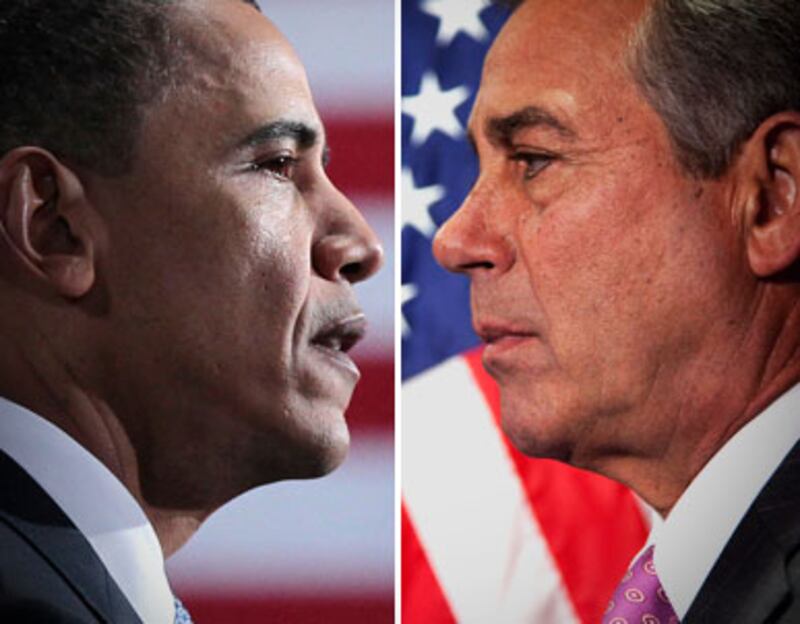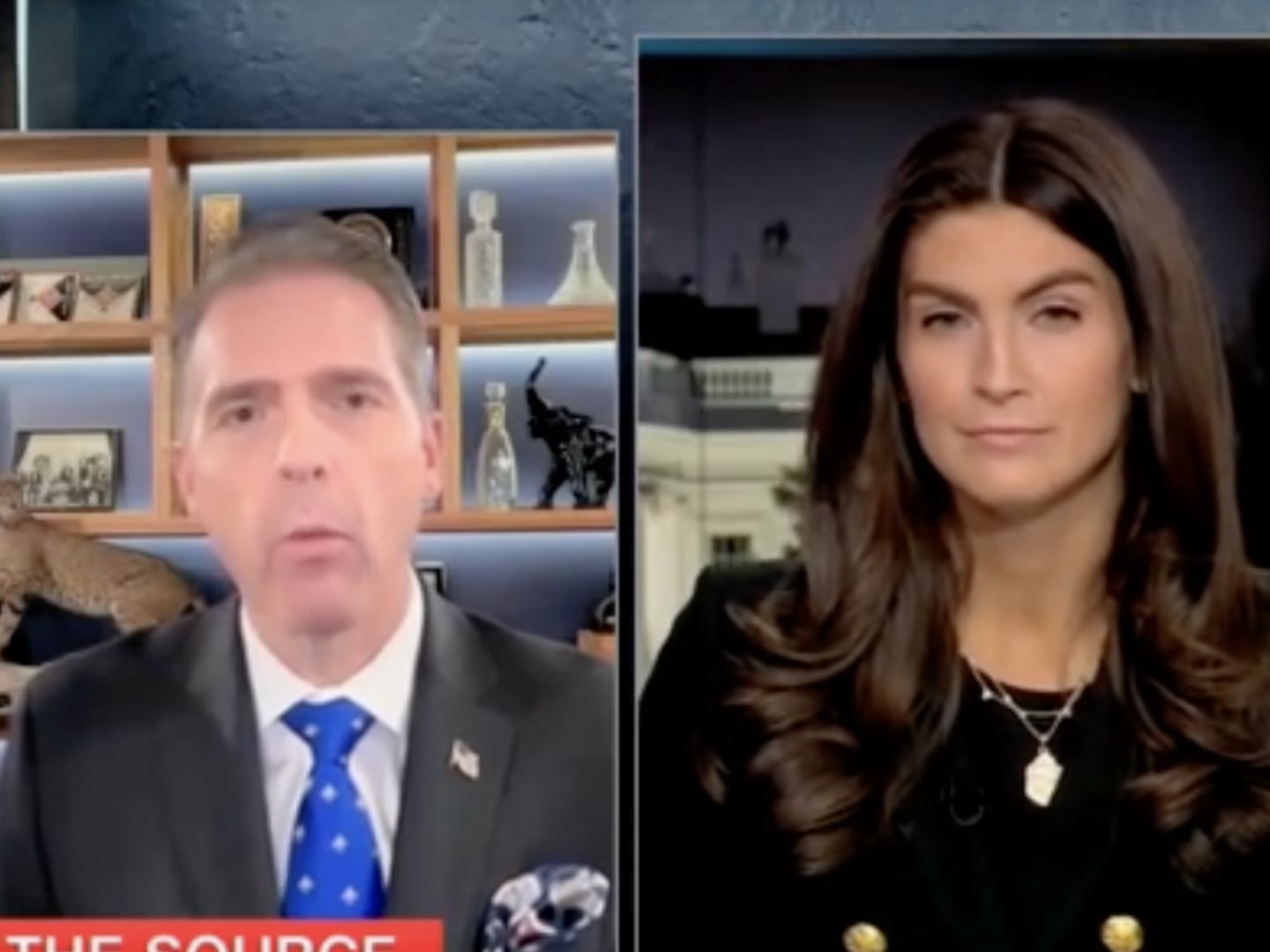Okay, we got a deal. We can cheer briefly and let out a collective sigh of relief. But, in truth, it's pathetic that we ever got to this point. The eleventh-hour negotiations, as ugly as they were, were just a minor battle compared to the real budget war that is about to begin.
And it will get uglier, for there are few profiles in courage in D.C. anymore, as Sen. Tom Coburn (R-OK) testified:
“I would call on my colleagues to start thinking about what the real disease is in Washington... we don’t have the courage to make the very hard choices that are in front of our country today and then live with the results of that in terms of how it’s going to impact our political careers. Everybody’s got a program they want to protect.
“Well, the message for America today is every program’s going to get hit. The Defense Department’s going to get hit, every program’s going to get hit. My taxes are going to go up. Sorry, they’re going to go up. This country cannot get out of this mess with the behavior that we’re exhibiting in this body, and if we fail to do what is necessary for our country at this critical time in our juncture, history will deem us absolutely incompetent.”
Nevertheless, the media machine will cogitate for the next 48 hours on the supposed winners and losers. Here’s a view of the madness through an admittedly Republican—though centrist—lens:
• Peter Beinart: The Budget Deal’s Odd Couple• Howard Kurtz: How Obama Won the Budget WarWhy did we reach a shutdown showdown?
The 2011 budget should have been proposed, passed, and signed before October 1, 2010. But the Democrats failed to act—even though they had control of the House, Senate, and White House. They failed to act because they feared the electorate’s response in the midterms.
Who were the extremists?
The GOP may have been “extreme” for holding Planned Parenthood and the EPA as ideological hostages in the budget negotiation process, but Democratic leaders have not behaved like the civil adults President Obama hoped they would.

• Rep. Louise Slaughter (D-NY): Republicans came to Congress “to kill women.” • Rep. Nancy Pelosi (D-CA): In the Republican budget proposal, “6 million seniors are deprived of meals.” • Rep. Debbie Wasserman Schultz (D-FL): Ryan’s 2012 budget plan “would literally be a death trap for seniors.” • Delegate Eleanor Holmes Norton (D-D.C.): “This is the functional equivalent of bombing innocent civilians." • USAID Administrator Rajiv Shah: The Republican budget “would lead to 70,000 kids dying." • Rep. Sheila Jackson Lee (D-Texas): “...people are being rolled out of nursing homes in wheelchairs, with crutches, some on beds.” • Sen. Harry Reid (D-NV): Republicans “want to make it harder... for a woman to get a cancer screening.”
So how big a cut is $38 billion?
Not enough. According to the Congressional Budget Office, federal spending this fiscal year will total about $3.7 trillion. A $38 billion cut amounts to a one percent reduction—or less than four days' worth of spending.
Though the largest spending cut in history, why couldn’t Speaker John Boehner cut more?
"The message for America today is every program's going to get hit."
Republicans control only one-half of one-third of the government. And a cut of $38.5 billion is $38.5 billion more than President Obama proposed.
The agreement also sets the stage for trillions more in spending cuts, and guarantees include:
• A Senate vote on a repeal of “Obamacare,” meaning 23 Democratic Senators up for re-election will now have to go on the record right before the 2012 elections. • A study of how individuals and families will see increased premiums as a result of Obamacare mandates. • A full audit of all the waivers that the Obama Administration has granted to corporations, organizations, and unions who can't meet the new annual healthcare coverage limits. • A full audit of the administration’s comparative effectiveness research funding. • Mandatory audits of the new bureaucracy set up under Dodd-Frank financial reforms. • And, President Obama’s signature on the Students for Opportunity and Results Act, the scholarship program for which Boehner has fought so hard to ensure low-income students in D.C. have access to a quality education.
Who won?
By holding onto the most critical element—budget cuts—but compromising the ideological riders, Boehner was the clear winner. The conversation in Washington has changed from whether to cut the budget to how much to cut the budget. And Boehner deserves much of the credit.
Though President Obama did not take an early lead in the debate, he won a short-term victory by bringing together the opposing sides. Whether he answers the challenge offered by Rep. Paul Ryan’s (R-WI) Path to Prosperity by offering up a real and bold plan of his own will test the real strength of his leadership.
• Shutdown Averted: Inside the Budget Deal• Howard Kurtz: How Obama Won the Budget War• Full Coverage of the Budget Debate Who lost?
With the national conversation now focused on how much spending to cut, Majority Leader Reid has had to change his assessment of the budget cuts from “ draconian” to “ historic,” and he now admits there are more cuts to come. Reid lost control of the narrative and the battle.
What’s next?
A true war of fiscal ideas and philosophy is yet to come as debates on the debt ceiling, the 2012 budget, and entitlement reform begin. For the country to survive, we need bold leadership and an honest conversation with the American people.
At least avoiding the shutdown allows us to eliminate the short-term distraction and move on to the more important long-term discussion and fix.
And, unfortunately, the engagement to come will undoubtedly make this recent skirmish look tame.
As vice chairman of Hill & Knowlton and Public Strategies, and president of Maverick Media, Mark McKinnon has helped meet strategic challenges for candidates, corporations and causes, including George W. Bush, John McCain, Ann Richards, Charlie Wilson, Lance Armstrong, and Bono. McKinnon is co-founder of No Labels and co-chair of Arts & Labs.






